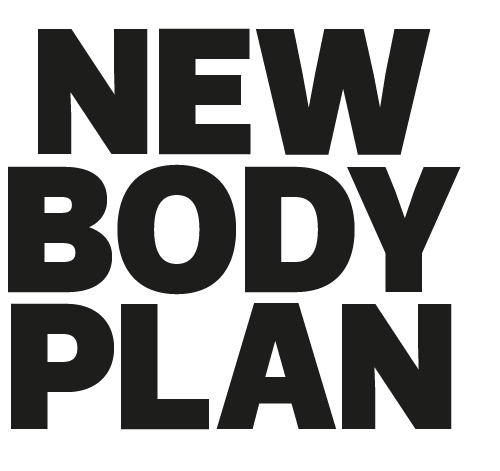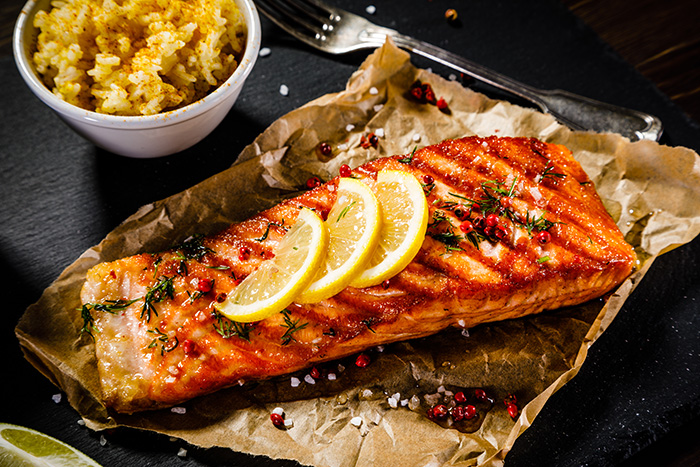How to improve gut health and lose fat faster
The gut is known as your “second brain” with good reason. Here’s how to improve gut health so you can look, feel and perform at your very best, says New Body Plan’s Joe Warner
The old saying goes that “you are what you eat”.
But a more accurate version would be “you are what you absorb”. The food you eat has an enormous effect on your health and well-being, from how easily you lose or gain weight to your risk of certain illnesses and diseases.
What is not so well understood, but just as important, is the impact of how you eat and how this affects nutrient absorption.
Research shows listening to different types of music, eating from coloured plates and even the weight of cutlery can all affect the speed and amount you eat, as well as your meal enjoyment.
But it’s not just external factors at play: the digestive system is highly sensitive to signals coming from your brain, and your physiological and psychological state at mealtimes has a significant impact on how well you digest food and absorb nutrients.
Find your perfect fat-loss plan!
Take the New Body quiz!
How to improve gut health: the digestion process
The digestive system is composed of the mouth, oesophagus, stomach, small intestine, large intestine (or gut) and rectum. Digestion starts in the mouth, with the enzymes in your saliva that begin to break down food, but most of the action occurs in your stomach.
That’s where enzymes reduce the larger pieces of food into smaller components. Proteases break down proteins into amino acids; amylases break down carbs into simple sugars; and lipases break down fats into fatty acids.
These nutrients are then absorbed through the wall of the small intestine into the bloodstream where they travel through the circulatory system until they get to where they’re needed. Any nutrients that aren’t immediately needed are stored or excreted.
How to improve gut health: stress and digestion
You’ve probably heard of the “fight, flight or freeze” response, which is how the body responds to danger for survival, known scientifically as the sympathetic nervous system. We also have the parasympathetic nervous system, which is the “rest and digest” side to the system.
These two parts of the nervous system work like traffic lights: when one system is “on” or green, the other is “off” or red. They can’t both be green at the same time (otherwise there’ll be chaos).
What’s this got to do with eating and your gut? A lot, actually! Because the two systems can’t run simultaneously, that means when you’re stressed it is very difficult to digest food properly.
Your appetite is suppressed, the movement of food through your digestive system slows, and blood flow is directed away from your digestive tract to your limbs to help you escape or fight off the perceived danger.
How to improve gut health: chronic stress
While we no longer face that “quick, run, there’s a tiger!” type of acute stress, many of us suffer from long-term or “chronic” stress that seems an inevitable part of modern life (it’s not inevitable, and here’s how to fix it!).
Chronic stress is really bad for your health. It depletes essential nutrients and impairs the body’s repair, growth and recovery processes; it causes more of what you eat to be poorly digested; and it can create impairments in the gut that trigger allergies, bloating and autoimmune disorders such as IBS.
It also diverts our attention and energy to what’s stressing us and away from more beneficial activities. Prolonged periods of stress can drive us to use food as a distraction or escape, and you’re less likely to be aware of what and how much you’re eating, increasing the chances of overeating and making matters worse.
How to improve the health of your gut
Your gut and your brain are very closely linked and your digestive system shuts down when you’re stressed. Eating in a stressed state reduces how well your body is able to digest the food you eat and absorb nutrients from it, increases the risk of overeating and weight gain, and isn’t enjoyable – in short, it sucks! The good news is that there’s an antidote to stressful eating and it can make you leaner and happier!
Find your perfect fat-loss plan!
Take the New Body quiz!
3 things I wish I’d known when trying to get lean and lose weight

